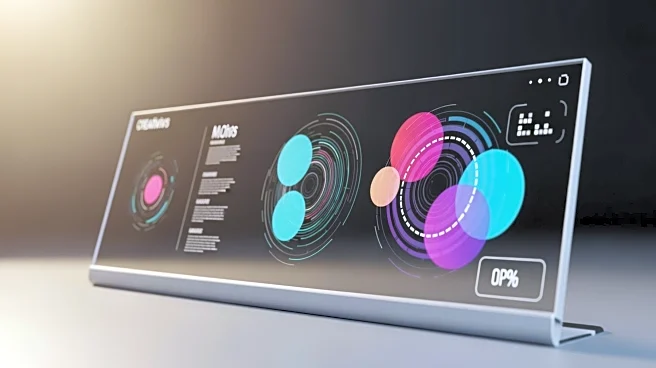What's Happening?
Mondelez International, the maker of Oreo cookies, is adopting a new generative AI tool to significantly cut marketing costs. The tool, developed in collaboration with IT firm Accenture, aims to reduce
production costs for marketing content by 30% to 50%. Mondelez plans to use this AI-generated content for social media campaigns, including for its Chips Ahoy cookies in the U.S. and Milka chocolate in Germany. The company has invested over $40 million in the tool, which is expected to produce short TV ads ready for airing by next year's holiday season and potentially for the 2027 Super Bowl. Mondelez's initiative comes amid industry challenges such as tariffs and shrinking consumer budgets, prompting a shift towards AI to streamline advertising processes.
Why It's Important?
The adoption of generative AI by Mondelez highlights a growing trend among consumer goods companies to leverage technology for cost efficiency. By reducing reliance on traditional advertising agencies, Mondelez can accelerate product development and marketing strategies, potentially gaining a competitive edge. This move could influence other companies in the sector to explore AI solutions, reshaping the advertising landscape. However, the use of AI in marketing raises questions about creativity and authenticity, as seen in previous AI-generated ads criticized for lacking emotional depth. Mondelez's approach, which excludes human likenesses in AI content, reflects a cautious strategy to avoid negative consumer reactions.
What's Next?
Mondelez plans to expand the use of its AI tool across various brands and regions, including Oreo in Brazil and Cadbury in the UK. The company will also utilize the tool for product pages on major e-commerce platforms like Amazon and Walmart. As Mondelez continues to refine its AI capabilities, it will maintain oversight to ensure content aligns with ethical standards, avoiding unhealthy or manipulative messaging. The success of this initiative could prompt further investment in AI technologies, potentially leading to more sophisticated and personalized marketing campaigns.
Beyond the Headlines
The integration of AI in marketing not only offers cost benefits but also raises ethical considerations. Mondelez's guidelines against promoting unhealthy habits or using offensive stereotypes underscore the importance of responsible AI use. As AI becomes more prevalent in advertising, companies must navigate the balance between innovation and ethical responsibility, ensuring that technology enhances rather than detracts from consumer trust.








